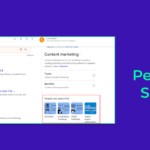Table Of Content
In a surprising turn of events, a publisher recently took to Twitter to express frustration over what they perceived as Google “stealing” their branded searches for use in rich results.
Publisher’s Complaints Go Viral
The publisher’s complaint extended beyond branded and site-specific searches. This is because they showcased Google’s use of their content in regular keyword searches, such as “Mexico Travel Tips.” The publisher argued that Google was essentially recreating entire blog posts. This also includes stolen photos, to compete directly against the content creators.
Sharing Response On Twitter
The publisher took to Twitter to share their reaction to what they felt was essentially a theft of their content for the benefit of Google, with little to no benefit to the publisher.
In fact, they even shared a screenshot of a branded site:
search for “things to do in Denver” with content directly from their site.
Google’s Unexpected Response
In response to these accusations, Google’s SearchLiaison, also known as Danny Sullivan, offered an unexpected explanation. Instead of staunchly defending Google’s practices, Sullivan acknowledged the publisher’s concerns. Further, he has promised to relay the feedback to the team.
Search Liaisons Explanation
Sullivan clarified that the rich results, utilizing the entirety of the publisher’s content, included a link back to the original webpage. Additionally, he acknowledged that the preview-to-click mechanism might not be ideal. Also, he emphasized its alignment with the goal of improving the overall search experience.
Let’s see what Search Liaison Tweeted Exactly
Legal Right vs. Subjective Fairness
Despite Sullivan’s response, questions lingered about the fairness of Google’s rich results. The legal definition may grant Google the right to use website content…
…but the subjective sense of fairness raises concerns among publishers. Many feel that Google’s utilization of its content primarily benefits the search giant rather than the creators.
Continued Debate
As the debate continues, it remains to be seen whether Google will revisit its approach to rich results. A delicate balance between fair use and perceived exploitation underscores the challenges of presenting online content.








